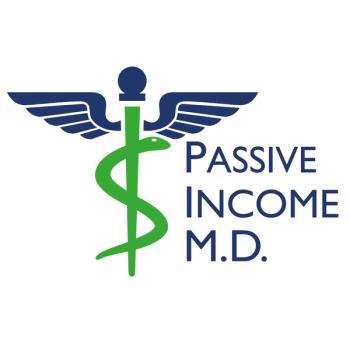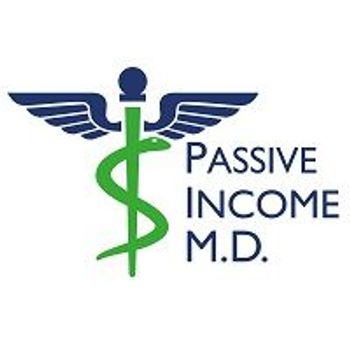
They say the average millionaire has seven, how many should you have?

A comparison of state income tax burdens, geared toward physicians.

Taking a closer look at the sudden rush to buy stocks.

What will I do when I am retired early? Here's a list of 50 things I would love to start doing, or do more often in early retirement.

As an investor, it's critical to document your reasons and expectations for purchasing stock. This helps to counter hindsight bias, which tends to make people overstate after the fact what they anticipated before they made the decision. This is an approach professional investors use, but other individuals do not.

Long-term disability coverage is important for many occupations, but for physicians it’s particularly critical. Even a relatively minor accident or illness can interfere with their ability to practice medicine.

Looking for additional streams of income? Here are some more ideas...

Though there may be little you can control in the realm of investing, there are at least four things that you can. They include knowing your risk tolerance, being aware of how tax rules affect your investments, being mindful of the fees you pay, and looking for conflicts of interest in your advisor. Tending to these four considerations will increase your chances of success.

Are we on an investment cliff? It’s in our nature to assume that current trends – whether good or bad – will continue. But it’s important to keep in mind that the market is random. Predicting its future from the recent past is less than accurate. That’s where the statistical principle, regression to the mean, comes in.

The term ‘practicing at the top of your license’ has recently taken on popularity in the medical community. There are several practical reasons that the medical system benefits from everyone practicing at the top of their license.

QLACs let you defer some required minimum distributions, letting more money grow in your IRA or 401(k). If you don’t need the income early in your retirement, RMDs cause problems. There is just one way to reduce your RMDs.

Medical professionals are naturally mindful of the risk of claims on their assets, but many wrongly assume that having adequate professional malpractice insurance is protection enough. They’re overlooking other types of claims — those having nothing to do with their professional practices.

Medical professionals are among the millions of Americans who confuse the financial products they own with having a retirement plan. Unfortunately, most individuals don’t have a plan. Instead, they own a variety of products they’ve been sold by a commission-based financial advisor, broker or insurance representative â€â€

Depending on expectations, it can be stressful and unproductive when doctors looking to move to non-clinical work take certain steps of the transition process out of order. While there are always exceptions, and some physicians are indeed lucky and land dream jobs without any preparation, often, there is preparation involved in getting a non-clinical job.

Elon Musk is now saying that private citizens can fly to the moon. The cost? A lot — millions and millions and millions. But, there is a way for us lesser beings to participate. By visiting the Atacama Desert, the driest place on earth. Its terrain is like the moon. The advantage to more minor mortals is that the price is minimal compared to a moon jaunt, plus getting there and coming home is easier (also safer, I assume).

Often doctors are collectors. In fact, some diversify their financial portfolios with fine art, wine or cars. This begs the question, what are collectors aside from sometimes being physicians? Two philosophers, John Dewey (1859-1952) and Jean Baudrillard (1929-2007), tackled this issue.

In my daily conversations with medical colleagues, I often toss around certain terms without explaining them fully -- 401k, 403b, 457, IRA, HSA, 529, etc. The reason why these particular number-letter combinations come up so often is because tax-advantaged investment plans are by definition better than regular taxed investment plans -- unless you really like paying taxes. But even tax advantaged investment plans are not all created equal. Let's hit the basics and discuss the different types of investment plans.

How do you measure the success of your portfolio? If you’re like most investors, you probably compare the performance of your portfolio to a major index, such as the S&P 500. But this might not be the best approach. Often, investors won’t see the same gains in their portfolios as they do in the S&P, mostly because the S&P 50 is cap weighted.

The Federal Reserve’s decision to raise interest rates last week has sent ripples through the global economy. But you may be feeling the impact a bit closer to home, if you’ve looked at your portfolio. Fortunately, there are a few things you can do to protect your investments. Read on, particularly if you’re heavily invested in bonds.

I've spent the first forty years of my life enthusiastically accumulating. I've realized it's time to start dealing with the excess.

Tax Day – Tuesday, April 18 – is almost upon us. Even with the clock counting down, it’s still not too late to save some money with 2016 deductions. Here are five things you can do to slash your 2016 taxes.

Hypothetically, you just got a new job and you’re wondering what to do with your 401k. Do you leave it where it is, or roll it over to your new employer? There are pros and cons for each, this expert says. The key is avoiding these five common mistakes that can prove costly.

Why MACRA and HIPAA go hand-in-hand: tips from a pro.

You’ve worked hard, usually on little sleep, and now you’ve received your first employment offer outside of training. Now what?

Neuroeconomics is an emerging field that uses economics and neuroscience to better understand the financial decisions that we make. Behavioral economics, which incorporates elements of psychology, is also helping us better understand monetary behavior.

Sure, it may sound familiar, but buy-and-hold investing is just as effective as it was years ago. You just need to make a few adjustments. Here’s what you should know.

When the program first began, CMS anticipated many physicians would take advantage of this new source of revenue. But instead of jumping on the bandwagon, quite a few doctors have opted not to participate in billing for CCM services under CPT code 99490.

“The industry will feel the reimbursement pain of not being prepared for the rapid rise of outcomes-based measures and the need for real-time clinical, administrative, financial and health device data to support these models,†says David Nace, MD.

After attending the U.S. Naval Academy and serving as a surgeon in Iraq, John-Paul Rue, MD, made the shift into the field of sports medicine.

Fixed annuities are a bond substitute offering guarantees, safety, flexibility and tax deferral.